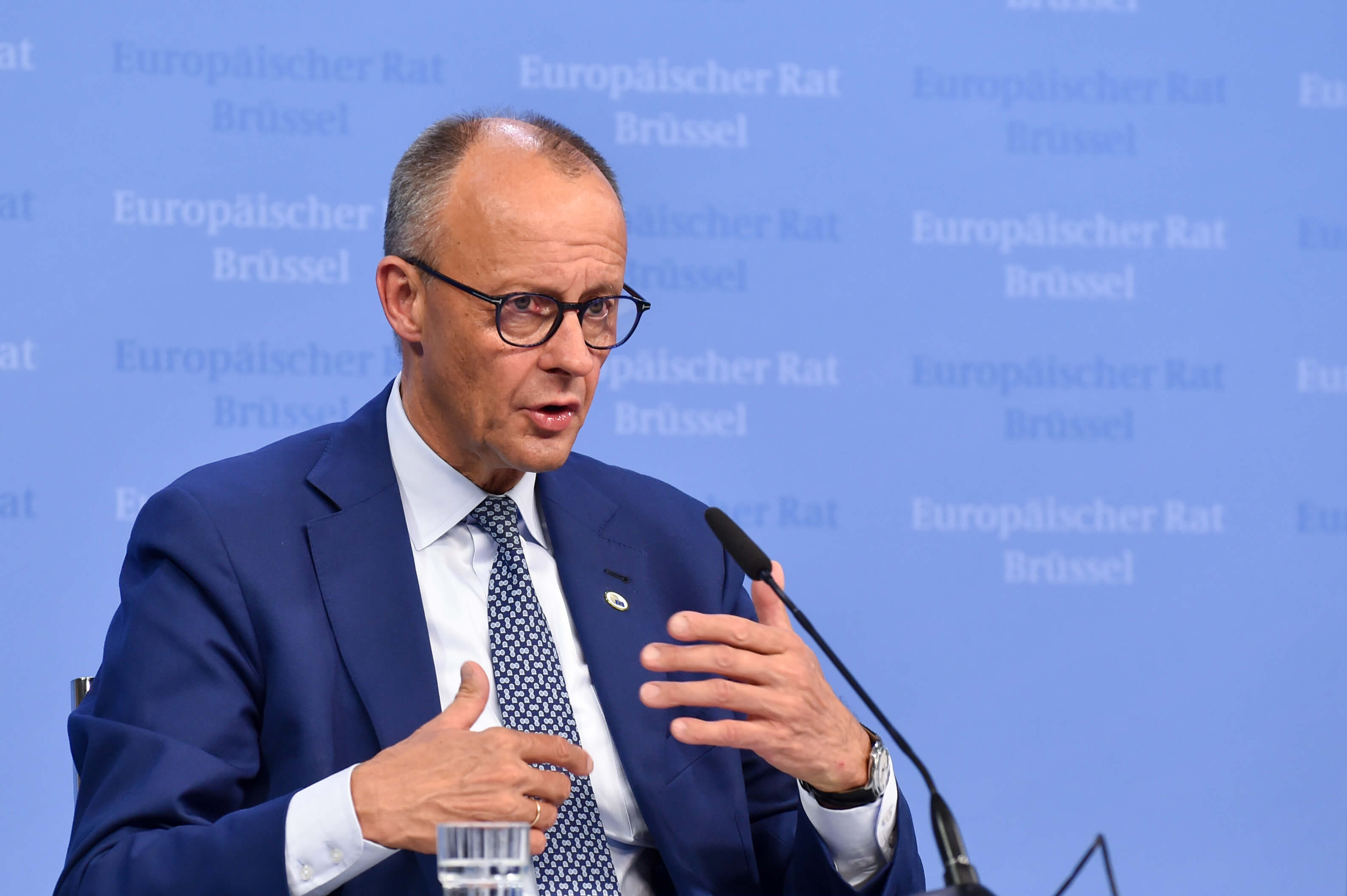The meeting between German Chancellor Friedrich Merz and President Recep Tayyip Erdoğan in Ankara marked the first significant change in relations between Berlin and Ankara after nearly a decade of stagnation.
For Germany, it is an attempt to bring Turkey back into the European orbit as a functional partner. For Turkey, it is a test of how far it can take advantage of renewed Western interest without abandoning its own policy.
Merz arrived in Ankara with a clear plan: to renew communication on defence cooperation. Erdoğan responded immediately by declaring that it is time for Germany and Turkey to start joint projects and that "problems in arms procurement remain behind them."
This refers to the long-standing German blockade of military supplies to Turkey. The change occurred this summer, when Berlin gave its consent to the sale of twenty Eurofighter Typhoon combat aircraft.
The meeting was a political confirmation of that decision and a signal that Ankara and Berlin could enter into broader industrial cooperation within the European defence programme SAFE.
For Germany, this is not a concession but a calculated necessity. The war in Ukraine has exhausted Europe's military capabilities, and Turkey has technology, industry, and a strategic position that Europe lacks.
For Erdoğan, it is an opportunity to renew the relationship with the West not through politics, but through factories, contracts, and military logistics.
Gaza and the limits of consent
At a joint press conference, Erdoğan asked Merz, "Does Germany not see the genocide in Gaza?"
This was not a diplomatic improvisation. Erdoğan wanted to show that Turkey does not accept the West's tacit approval of Israel's policies.
Merz knows that Germany cannot have a dialogue with the Middle East without Turkey
Merz did not engage in the controversy. He confirmed that Germany supports Israel's right to defend itself, as well as humanitarian aid to the Palestinian population.
The difference between them is significant, but not an obstacle. Merz knows that Germany cannot have a dialogue with the Middle East without Turkey. Erdoğan knows that he needs Berlin to maintain industrial and financial stability.
This balance of interests replaces the earlier model in which political differences automatically ended cooperation.
Migration and pragmatism
Migration remains a central issue in relations between Berlin and Ankara. During the talks, it was confirmed that Germany seeks the return of rejected asylum seekers, while Turkey expects additional funds and technical support.
The agreement has not been made public, but it is clear that it will be implemented through existing mechanisms.
For Germany, cooperation with Turkey remains the main instrument for controlling migration flows. For Erdoğan, it serves as leverage in negotiations with the EU – each new agreement brings additional financial resources and strengthens Turkey's position as an indispensable partner in European security.
A change of tone
Merz stated that Germany regards Turkey as a "close partner of the European Union". By doing so, he paved the way for a more comprehensive dialogue, yet he did not guarantee full membership.
Erdoğan accepted this without objection. For Erdoğan, membership is no longer a priority; instead, he values the status of being an equal actor.
Berlin and Ankara are entering a new phase of relations based not on political trust, but on mutual interests
The meeting confirms this: Berlin and Ankara are entering a new phase of relations based not on political trust, but on mutual interests.
Germany gains a partner for the southern flank of Europe, while Turkey gains access to European programmes that it had been unable to access for years.
What will follow
In the coming months, there will be a series of technical talks on the military industry and migration. Berlin must present a framework for future cooperation with Turkey to parliament, while Ankara prepares changes to the law on military production that would allow the participation of foreign partners.
 Berlin will continue to pursue a bilateral policy with Ankara because migration and defence are more important than the symbolism of European unity - Friedrich Merz
Berlin will continue to pursue a bilateral policy with Ankara because migration and defence are more important than the symbolism of European unity - Friedrich Merz
If the momentum continues, a memorandum of understanding between the defence ministries is expected by spring 2026, which would be the first formal document of its kind since 2014.
The greatest resistance comes from Athens and Paris, where they do not want to strengthen the Turkish presence in European defence programmes.
Berlin, however, will continue to pursue a bilateral policy with Ankara because migration and defence are more important than the symbolism of European unity.
Reality instead of political phrases
The meeting in Ankara was not an attempt to "repair relations". It was the beginning of a new arrangement. Germany and Turkey have come together again for the same reason they drifted apart – because their interests allow for nothing else.
Erdoğan knows that Turkey cannot sustain industrial growth without access to European technology and capital. Merz knows that Europe cannot control migration or maintain stability in the Middle East without Turkey.
At that meeting point, there is no friendship, but there is rationality. And that is more than Europe has had with Turkey in the past ten years.